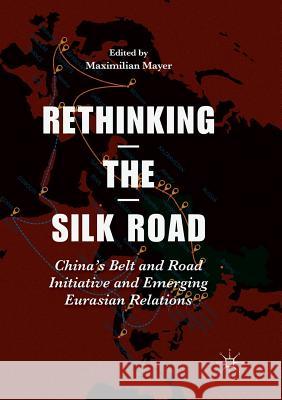Rethinking the Silk Road: China's Belt and Road Initiative and Emerging Eurasian Relations » książka
topmenu
Rethinking the Silk Road: China's Belt and Road Initiative and Emerging Eurasian Relations
ISBN-13: 9789811355226 / Angielski / Miękka / 2019 / 287 str.
Kategorie BISAC:
Wydawca:
Palgrave MacMillan
Język:
Angielski
ISBN-13:
9789811355226
Rok wydania:
2019
Wydanie:
Softcover Repri
Ilość stron:
287
Waga:
0.38 kg
Wymiary:
21.01 x 14.81 x 1.6
Oprawa:
Miękka
Wolumenów:
01
Dodatkowe informacje:
Wydanie ilustrowane











